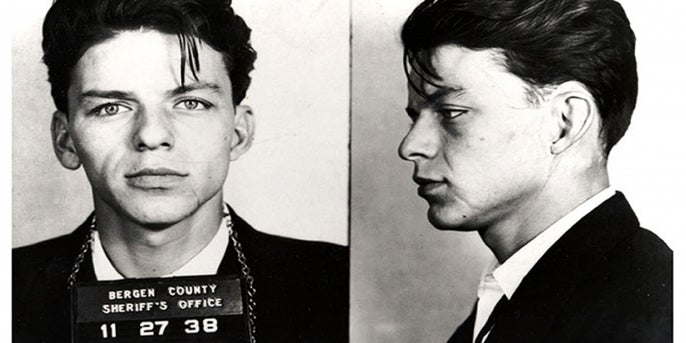Frank Sinatra held a multifaceted persona as a heartthrob crooner, an acclaimed actor, and a prominent figure within the Rat Pack.
His charisma and talent garnered him widespread adoration, with rumors circulating that he was the epitome of desired allure.
However, beyond his adoring fan base and critics lay another entity seeking to uncover the enigmatic layers of the renowned “Old Blue Eyes” – the FBI.
For over four decades, the Federal Bureau of Investigation meticulously monitored Sinatra, compiling an extensive dossier detailing his actions, conversations, and associations.
Following Sinatra's passing in 1998, these confidential files were unveiled, shedding light on the turbulent journey he navigated with unyielding resolve and a penchant for living on his own terms.
Sinatra's ascent to stardom in the 1940s swiftly attracted the attention of the FBI, particularly due to allegations suggesting he had paid a substantial sum to evade military service during World War II.
Despite the Bureau ultimately validating his medical disqualification based on a punctured eardrum and psychological concerns, speculations persisted regarding his draft evasion, tarnishing his reputation during the late 1940s.
While Sinatra's justification for evading military duty remained plausible, his associations with reputed Mafia figures and a myriad of underworld characters painted a less pristine picture.
Delving into Sinatra's FBI dossier uncovers a narrative interwoven with the notorious personas of organized crime during that era.
Despite Sinatra vehemently refuting any ties to the mob, documented interactions with prominent Mafia members like Sam Giancana, the Chicago mob boss, cast shadows of doubt on his claims.
Sinatra purportedly facilitated Giancana's introduction to John F. Kennedy's electoral campaign in 1960, aiming to secure union support for the future president.
This alliance led to Sinatra performing at Giancana's Chicago establishment as a gesture of gratitude, further intertwining their relationship.
Additionally, Sinatra played a pivotal role in connecting Kennedy with Judith Campbell Exner, Giancana's paramour, sparking a convoluted affair that embroiled them in schemes involving Castro's assassination, ultimately unraveling before a Senate inquiry probing into potential Mob affiliations with the JFK administration.
The contents of Sinatra's FBI files delineate a tapestry of connections with underworld figures, featuring sections detailing his interactions with criminals and accusations of involvement in illicit activities.
Instances such as receiving gifts from Joseph and Charles Fischetti, influential siblings orchestrating illegal gambling enterprises, or making appearances reminiscent of scenes from “The Godfather” at events linked to prominent mobsters, including Angelo Bruno's daughter's wedding, underscored Sinatra's proximity to the criminal echelons.
Moreover, surveillance reports documented Sinatra's social escapades with Detroit mobsters Anthony and Vito Giacalone, illustrating a recurrent pattern of leisurely engagements that blurred the lines between entertainer and underworld affiliates.
Despite public exhibitions of camaraderie with known mobsters, Sinatra attempted to distance himself by offering to act as an informant to the FBI in 1950, a proposition promptly rebuffed by J. Edgar Hoover's administration, signaling a complex dynamic of intrigue and self-preservation amidst swirling allegations.
Sinatra's entanglement with organized crime extended beyond surface associations, delving into intricate webs of mutual interests revolving around vices like gambling, women, and wealth.
Despite occasional gestures of cooperation with law enforcement agencies, such as his offer to provide intelligence on criminal cohorts, Sinatra's endeavors to safeguard his image from incriminating implications only added layers of complexity to his enigmatic persona.
The FBI's scrutiny of Sinatra transcended mere investigations into his alleged mob affiliations, encompassing suspicions related to his political inclinations and affiliations with anti-establishment causes.
Accounts within the FBI files chronicled Sinatra's advocacy for progressive initiatives and vocal opposition against racial discrimination and McCarthyism, portraying a figure straddling the realms of entertainment and activism.
In a dramatic turn of events in 1963, Sinatra faced a harrowing ordeal when his son, Frank Sinatra, Jr., was kidnapped by three individuals, prompting a coordinated effort between Sinatra, the FBI, and law enforcement agencies to secure his safe release.
Sinatra's resilience in navigating personal crises echoed the resilient spirit encapsulated in his tumultuous career, embodying a blend of vulnerability and tenacity that defined his legacy.
Despite the shadow cast by his association with organized crime and suspicious activities outlined in the FBI dossier, Sinatra's unwavering commitment to combating societal injustices and championing democratic values emerged as a contrasting narrative within the labyrinthine tapestry of his life.
From his early encounters with conspiracy theorists to his enduring influence on music and culture, Sinatra's legacy endures as a testament to the complexities that underscored his storied existence.
Related Posts
- Woody Allen Hints at Frank Sinatra as Possible Father of Ronan Farrow
- Why Frank Sinatra’s Attorney Advised Against Marrying Marilyn Monroe
- Why Frank Sinatra Suspected Marilyn Monroe’s Murder: Startling Revelations Unveiled in New Book
- Why Frank Sinatra Suspected Foul Play in Marilyn Monroe’s Death: Insights from a New Book
- Well-Endowed Frank Sinatra: The Secret to His Seduction Techniques Revealed































